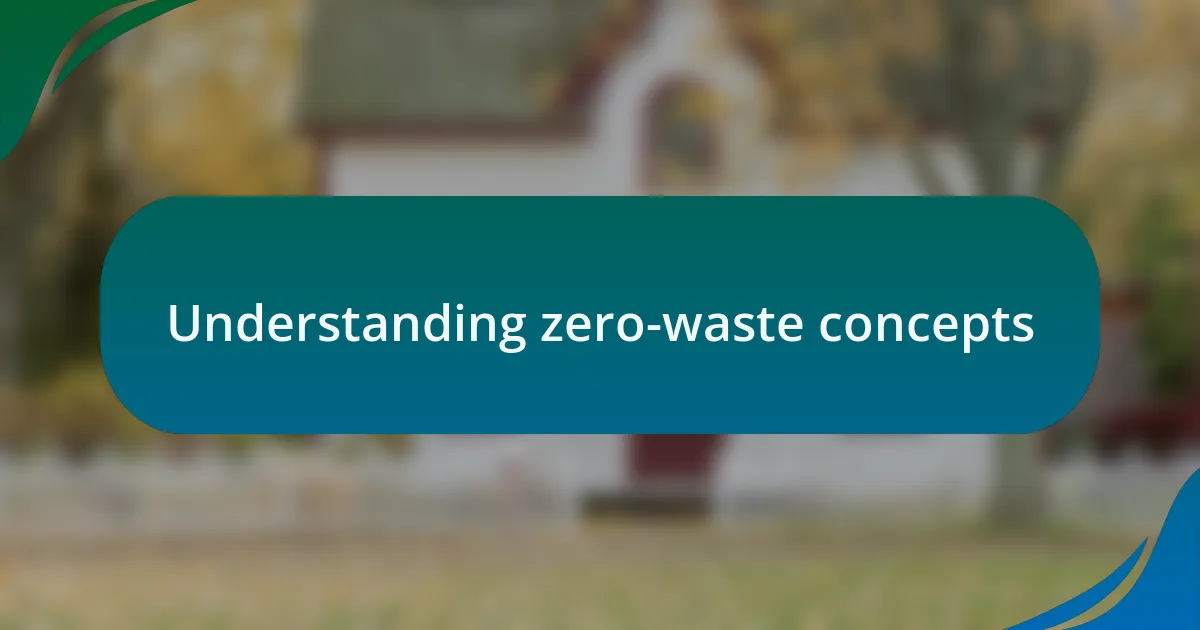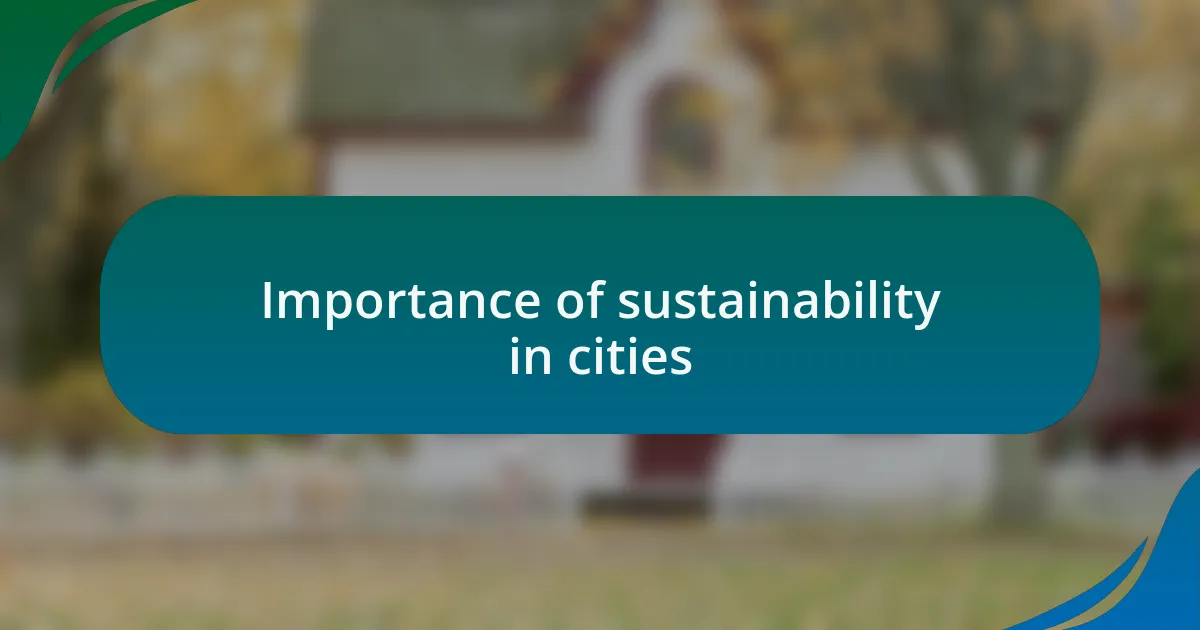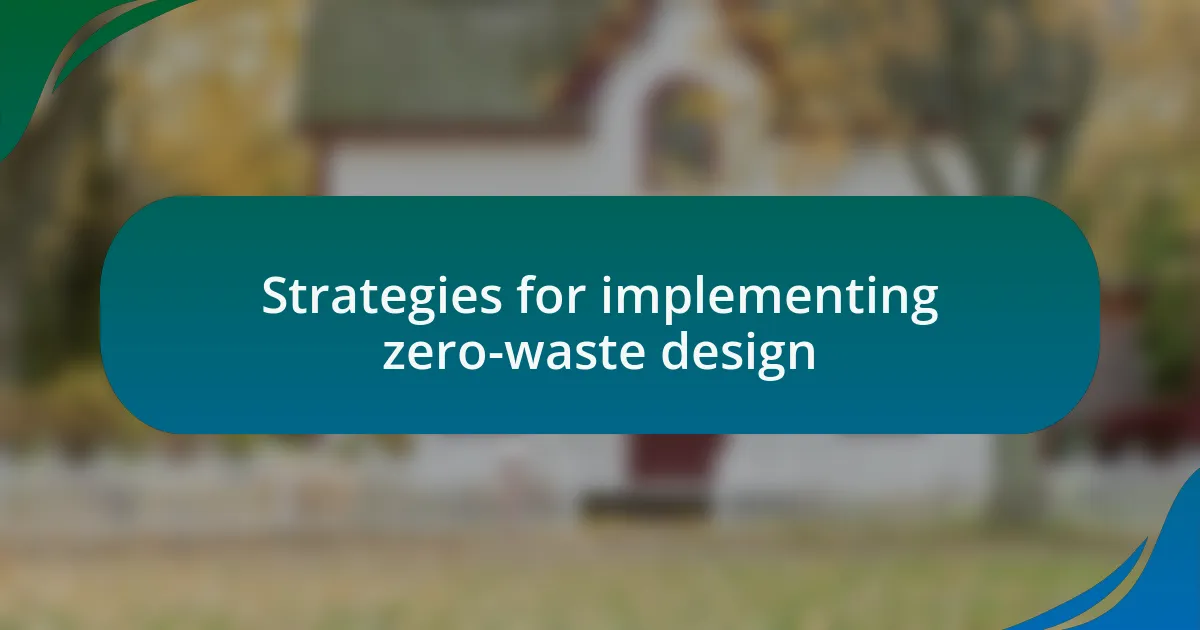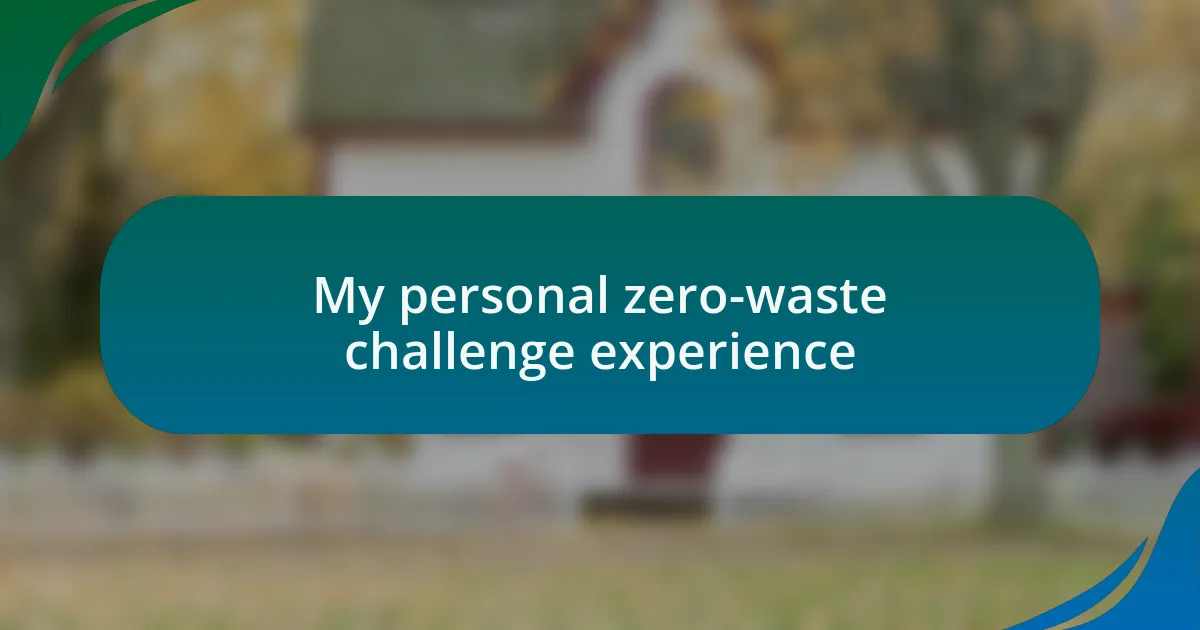Key takeaways:
- Zero-waste concepts reshape consumption and disposal, emphasizing sustainability and mindful choices.
- Urban sustainability is vital for improving quality of life and can lead to economic benefits through practices like urban farming and green spaces.
- Implementing zero-waste design involves using local materials, modular designs, and integrating food production into urban environments.
- A personal zero-waste challenge revealed the extent of everyday waste and fostered creativity through the crafting of reusable items.

Understanding zero-waste concepts
Understanding zero-waste concepts begins with recognizing that it isn’t just about eliminating waste; it’s about reshaping our entire approach to consumption and disposal. When I first dove into the challenge, I often found myself asking, “What would happen if I only bought what I truly needed?” This simple question shifted my perspective on materials and resources around me, emphasizing sustainability over convenience.
One particularly eye-opening moment was when I reflected on my shopping habits. I used to see plastic packaging as a norm, but during my zero-waste journey, I started to notice how deeply ingrained these practices were in my daily life. I vividly remember standing in the grocery store, overwhelmed by the options, and realizing that every item I chose had a tangible environmental impact. It was then that I understood that each decision, no matter how small, contributes to a larger picture of sustainability.
Additionally, the concept of zero waste challenges us to rethink not just what we throw away, but also how we can repurpose what we have. For example, I started composting kitchen scraps instead of tossing them in the trash. This shift not only reduced my waste footprint but also made me feel more connected to the food I eat and the environment around me. What if we all took that step — would it lead to a significant cultural transformation in how we view waste? My experience suggests it just might.

Importance of sustainability in cities
Sustainability in cities is crucial as urban areas are often the epicenters of resource consumption and waste generation. I remember walking through my city and feeling a disconnect between the concrete landscape and the natural world. It struck me that by adopting sustainable practices, such as enhancing public transport and creating green spaces, we have the power to blend urban life with environmental stewardship.
Urban sustainability isn’t just a trendy buzzword; it’s a necessity for future generations. I felt a sense of urgency when I realized that rising temperatures and deteriorating air quality could directly impact my daily life and that of my children. The actions we take today, like promoting recycling programs and energy-efficient buildings, can dramatically alter the trajectory of urban living.
Investing in sustainability not only improves our quality of life but also can lead to significant economic benefits. When I attended a local workshop on urban farming, I was inspired by how turning vacant lots into green spaces can enhance community cohesion and provide fresh produce. Imagine a city where sustainability breeds innovation—what other possibilities could emerge if we embraced this mindset fully?

Strategies for implementing zero-waste design
Designing with zero waste in mind requires a mindful choice of materials. In my experience, opting for locally sourced and sustainable materials not only minimizes transportation waste but also supports the local economy. When I visited a green building project in my neighborhood, I was struck by how using reclaimed wood and recycled metals added character and reduced waste significantly. Why wouldn’t we want to incorporate such beautiful materials?
Another effective strategy is to promote a modular design approach that allows for easy disassembly and reuse. I remember being involved in a community project where we designed furniture that could easily be repurposed as needs changed. The sense of creativity and adaptability in that process was invigorating. What if future architectural designs innately encouraged this level of flexibility?
Lastly, integrating food production into urban spaces is an innovative way to minimize waste. I’ve seen rooftop gardens transform unused spaces while providing fresh produce and pollinator habitats. This approach not only tackles urban waste but fosters a deeper connection between residents and their environment. Can we imagine a city where every building contributes to its community’s food resilience?

My personal zero-waste challenge experience
Taking on a zero-waste challenge was a deeply transformative experience for me. I vividly remember the first week; I was astonished by how much waste I generated just from my daily routine. It made me really question my consumption habits—why did I feel the need for so many single-use items? It was an eye-opener that shifted my perspective entirely.
Midway through the challenge, I began crafting my own reusable bags and containers. The thrill of creating something functional with my hands was invigorating. I still cherish that feeling—the pride of repurposing scrap fabric into something meaningful. It was not just about reducing waste; it became a creative outlet that sparked my passion for sustainable practices.
By the end of the month, I found myself reflecting more on the choices I was making. I recall one particular moment when I chose to compost instead of discarding my vegetable scraps. That small act felt monumental; it connected me to a larger cycle of life and waste management. Wasn’t I, in a small way, contributing to a healthier planet? I realized that living with intention does more than just reduce waste; it enriches our lives.